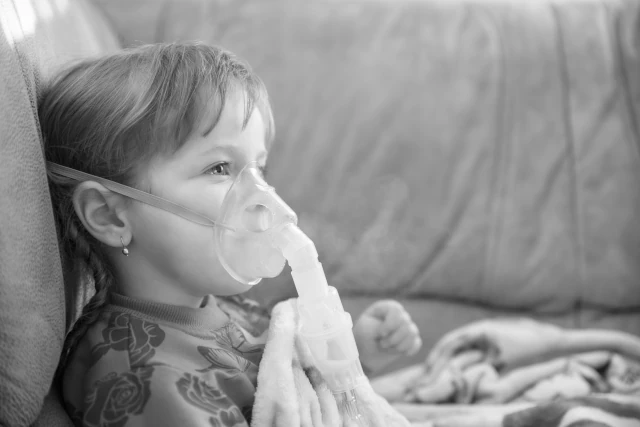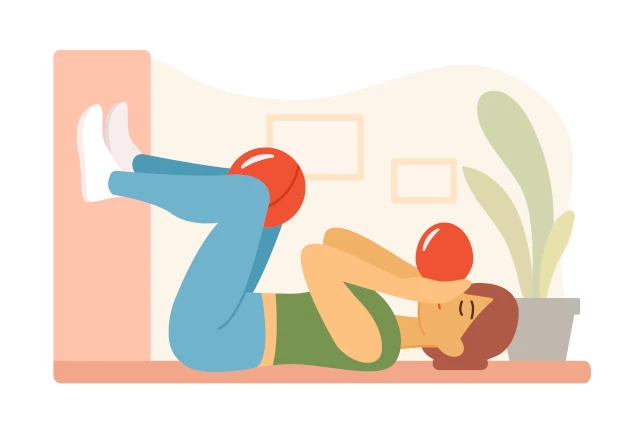
What Is Cystic Fibrosis? Symptoms, Causes, Diagnosis & Treatment Options Explained
- Dr. Prachi Saini (MPT)
Connect with our expert physiotherapist for personalized physiotherapy advice.
Cystic fibrosis (CF) is a rare but serious genetic condition that affects the lungs and digestive system. It causes mucus in the body to become thick and sticky, leading to severe respiratory and gastrointestinal problems. This blog explores what cystic fibrosis is, including its causes, symptoms, diagnostic methods, treatment options, and how physiotherapy plays a role in improving the quality of life.
What Is Cystic Fibrosis?
Cystic fibrosis is a hereditary disorder caused by mutations in the CFTR gene. This gene controls the movement of salt and water in and out of cells. When the gene is defective, the result is a build-up of thick mucus that clogs airways, traps bacteria, and causes frequent lung infections. It also interferes with the function of the pancreas and digestive enzymes, affecting nutrient absorption.
Causes and Risk Factors
CF is an autosomal recessive genetic disorder, meaning a child needs to inherit one defective gene from each parent to develop the condition. If both parents are carriers, there is a 25% chance their child will have CF.
Common Symptoms of Cystic Fibrosis
- Persistent coughing with thick mucus
- Frequent lung infections, such as pneumonia
- Wheezing or shortness of breath
- Poor growth and weight gain despite good appetite
- Greasy, bulky stools or difficulty with bowel movements
- Salty-tasting skin
How Cystic Fibrosis Is Diagnosed
Newborn screening is often the first step in diagnosing CF. If a baby tests positive, further tests are done to confirm the diagnosis:
- Sweat Test: Measures salt levels in sweat. High levels are indicative of CF.
- Genetic Testing: Identifies mutations in the CFTR gene.
- Lung Function Tests: Evaluate breathing capacity and airflow.
Treatment Options for Cystic Fibrosis
There is no cure for CF, but treatments can help manage symptoms, reduce complications, and improve quality of life:
- Airway Clearance Techniques (ACTs): Help loosen and remove mucus from the lungs.
- Medications: Includes antibiotics, mucus thinners, and CFTR modulators.
- Enzyme Supplements: Help digest food and absorb nutrients.
- High-Calorie Diets: Support proper growth and energy levels.
- Exercise: Enhances lung function and overall strength.
The Role of Physiotherapy in CF Management
Physiotherapy is vital in helping individuals with CF keep their lungs clear and maintain respiratory function. Techniques include:
- Postural Drainage: Uses gravity to help drain mucus from the lungs.
- Percussion (Chest Clapping): Loosens mucus for easier removal.
- Breathing Exercises: Improves ventilation and lung capacity.
Living with Cystic Fibrosis
With proper care, many people with CF now live into their 40s and beyond. Early diagnosis, personalized treatment plans, and support from a multidisciplinary healthcare team—including physiotherapists—can dramatically improve outcomes.
Why Are People with Cystic Fibrosis Not Allowed to Meet Each Other?
People with cystic fibrosis (CF) are advised to avoid close contact with one another due to the risk of cross-infection. Each individual with CF can carry unique strains of bacteria in their lungs—especially harmful ones like Pseudomonas aeruginosa or Burkholderia cepacia. When two people with CF are near each other, they can potentially transmit these resistant bacteria through airborne droplets, putting the other person at greater risk of lung infections and reduced lung function.
This is why CF guidelines recommend maintaining at least 6 feet of distance between individuals with CF and avoiding shared indoor environments whenever possible. These precautions are known as : CF infection control protocols, and are critical for preserving each patient’s lung health and life expectancy.
Conclusion
Cystic fibrosis is a complex condition requiring a comprehensive care approach. Through early detection, advanced treatments, and consistent physiotherapy, individuals with CF can lead fulfilling lives. If you or someone you know is dealing with cystic fibrosis, consult with a healthcare provider for a tailored treatment plan.
For more detailed information, visit the Cystic Fibrosis Foundation.
Connect with our expert physiotherapist for personalized physiotherapy advice.



